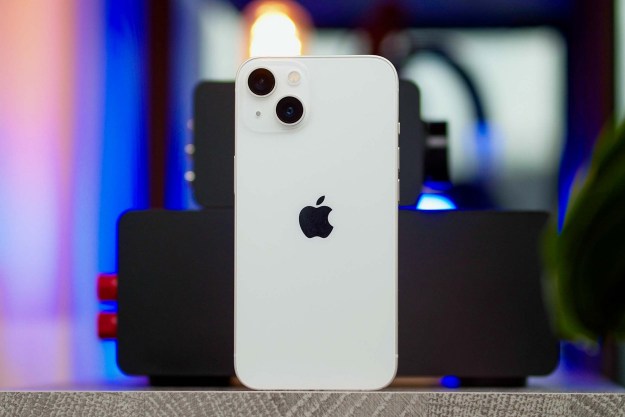
Google’s Executive Chairman and former CEO, Eric Schmidt sat down with Loic Le Meur at Le Web in Paris yesterday to discuss all things Google. In the interview, Schmidt discusses the challenges governments are facing in relation to technology, Google TV’s upcoming rise to prominence, the Motorola acquisition, why developers still favor iOS, the problem of noise in Google+, how Google is focusing its efforts on fewer products, and another Googler comes out to demonstrate some features of Android 4.0 (Ice Cream Sandwich). The full hour-long interview is embedded below and worth a watch, but we’ve grabbed a few interesting quotes.
Google TV is about to take over
“So we took Chrome and Android and combined them and stuck them inside of the television,” explained Schmidt. “Televisions have a processor and they have DRAM and so forth–they typically don’t have a hard drive. So we were able to figure out a way to, sort of, download software into that architecture using, essentially, the languages that Android and Chrome support. And, it looks like it’s working. We’ve just released version 2, and by the summer of 2012, because the product cycles are long, the majority of the televisions that you see in the television stores here will have Google TV embedded in it. Again, a similar strategy to what we did with Android. The price is free from Google. You will, of course, be paying for the television.”
The Motorola acquisition
When asked by Le Meur if he’d buy a TV manufacturer, like Google did with smartphone and tablet maker Motorola, Schmidt responded with a bit of a dodge.
Schmidt:”As far as I know that’s never even been discussed at Google, but you never know. One day we were talking about getting into the refrigerator business and I discovered that it was a joke.”
Le Meur: “But Motorola is not a joke.”
Schmidt: “No certainly not. What we decided to do is that we wanted to have a part of the mobile ecosystem so we made an offer over August to purchase Motorola, which was accepted. It should close in the early part of 2012. And in my opinion, it will close. At the moment, they are not owned by Google. We will run them separately to ensure that the Android ecosystem doesn’t get changed from the way Android works right now.”
Why do app developers still focus on iOS?
“It’s an excellent question,” said Schmidt. “I would say that it’s taken us a while. Our model is different; we have different hardware manufacturers. It’s taken us a while to get software that’s really capable of delivering on the promise that you just articulated. I would also say that Apple has done an excellent job with iOS and delivering that functionality that we all know about and I think it’s just a super piece of work.”
“So, with the ICS release, our core objective as a company is to get all of the hardware vendors onto that platform,” he continued. “With [ICS], from my perspective, we’ve got the Android Market working well, both in terms of the ability to buy, to charge carrier billing, all those kinds of things. We recently introduced Google Music with a big launch that we did in LA, and it took us a while to get there. So, my prediction is that six months from now you’ll say the opposite, because ultimately application vendors are driven by volume and the volume is favored by the open approach that Google is taking. There are literally so many manufacturers working so hard to distribute Android phones globally that whether you like ICS or not, and, again, I like it a great deal, you will want to develop for that platform, perhaps even first. So think of it as a transition over the next six months.”
The full interview is below.


